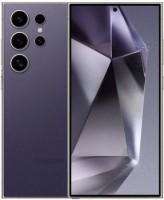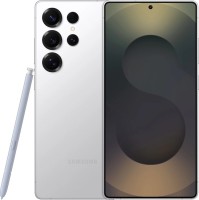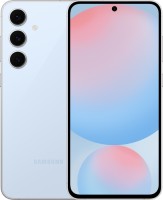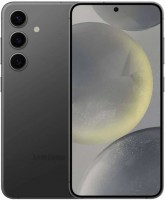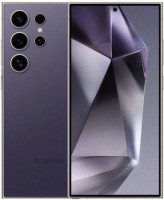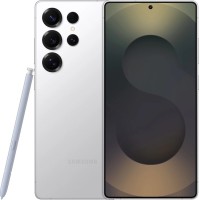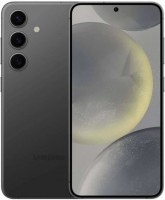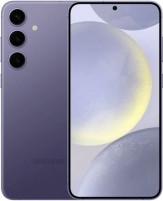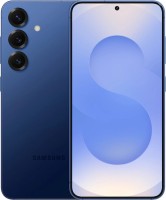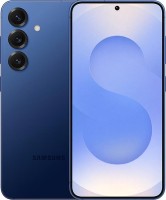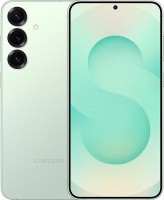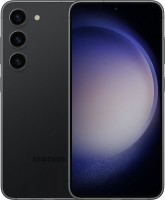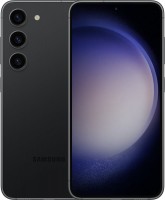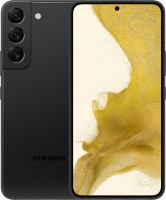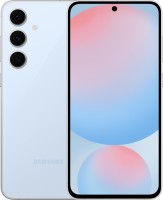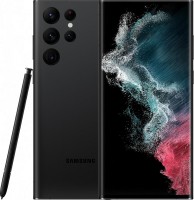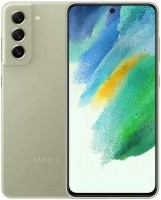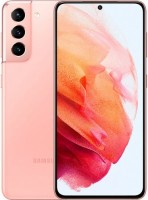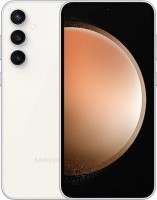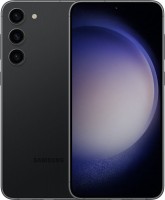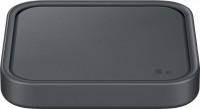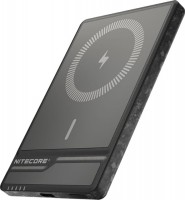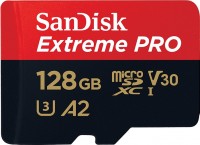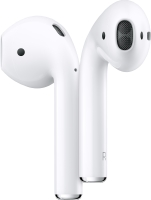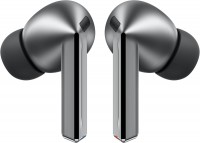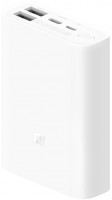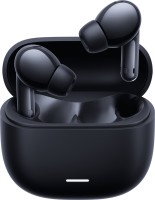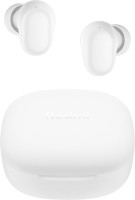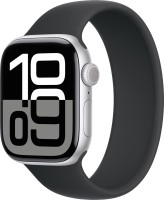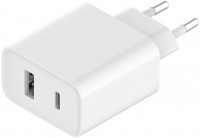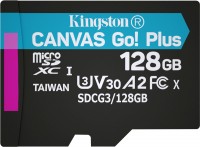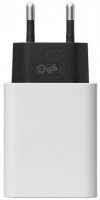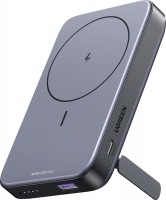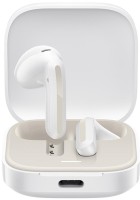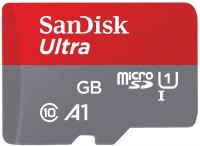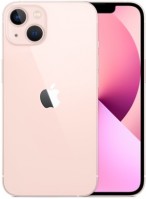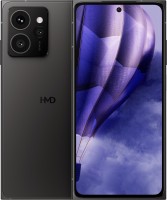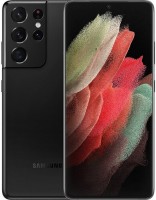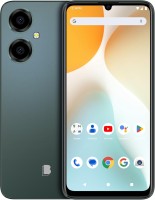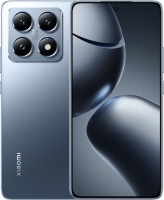Samsung Galaxy S8 64 GB / 2 SIM
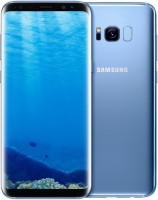 | Outdated Product $868.00 up to $1,205.60 Samsung's flagship smartphone, released in the spring of 2017 and continuing the tradition of the S series — that is, offering the user almost all the advanced developments available at the time of creation. It is made in a metal case with protection according to the IP68 standard, and a solid 5.8 "screen has a resolution of 2960x1440 and is rounded at the edges. The touch control buttons in this model are built right into the screen, and the fingerprint sensor has "moved" to the rear panel. Samsung smartphone processor Galaxy S8 — Octa-core (4 + 4) Exynos 8895 with 4 GB of RAM; in terms of built-in storage, there is only one version — 64 GB. There is a slot for memory cards, but for this you will have to give up the second SIM card. The main camera module did not receive fundamental diffe...rences from its predecessor — 12 megapixels, f / 1.7, optical stabilizer; however, due to software improvements, its work has accelerated. And the front camera is supplemented with a second "eye" responsible for unlocking by the face or even by the iris. The battery capacity is relatively small — 3000 mAh; but there are fast and wireless charging functions. |
Samsung's flagship smartphone, released in the spring of 2017 and continuing the tradition of the S series — that is, offering the user almost all the advanced developments available at the time of creation. It is made in a metal case with protection according to the IP68 standard, and a solid 5.8 "screen has a resolution of 2960x1440 and is rounded at the edges. The touch control buttons in this model are built right into the screen, and the fingerprint sensor has "moved" to the rear panel.
Samsung smartphone processor Galaxy S8 — Octa-core (4 + 4) Exynos 8895 with 4 GB of RAM; in terms of built-in storage, there is only one version — 64 GB. There is a slot for memory cards, but for this you will have to give up the second SIM card. The main camera module did not receive fundamental differences from its predecessor — 12 megapixels, f / 1.7, optical stabilizer; however, due to software improvements, its work has accelerated. And the front camera is supplemented with a second "eye" responsible for unlocking by the face or even by the iris. The battery capacity is relatively small — 3000 mAh; but there are fast and wireless charging functions.
|
| ||||||||||||||||||||||||||||||||||||||||||||||||||||||||||||||||||||||||||||||||||||||||||||||||||||||||||||||||||||||||||||||||||||
Always clarify the specifications and configuration of the product with the online store manager before purchasing.
Catalog Samsung 2025 - new arrivals, bestsellers, and the most relevant models Samsung.
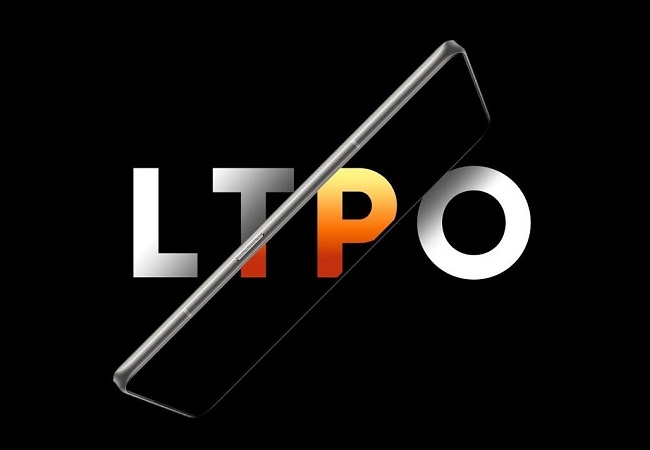

With similar dimensions to the predecessor model in the face of the Samsung Galaxy S7 Edge, the latest version of the flagship has lost the hardware keys on the front panel. They moved to the display, the diagonal of which increased to 5.8", due to which the screen took up 84% of the smartphone's front panel area.
Identification
The fingerprint scanner has also moved from under the screen — now it is in close proximity to the "eye" of the main camera. This location of the fingerprint sensor raises questions about the convenience of blindly recognizing a user by a fingerprint, since by touch a finger can easily miss and get on the lens of the photomodule. However, instead of a fingerprint sensor, you can use the identification by the face of the owner of the smartphone or in an even more advanced way — scanning the iris of the eye. A special camera for scanning the retina is located near the front and works similarly to that of the "explosive" Samsung Galaxy Note 7 — the sensor detects the owner of the smartphone from a distance of about 25-30 cm from the screen. To achieve maximum scanning accuracy, contact lenses and glasses must be removed in advance.
SuperAMOLED matrix
Following the traditions, the smartphone display is based on SuperAMOLED technology, only its resolution has grown to WQHD + format (2960x1440 pixels). The edges of the screen are curved, and in the locked state, a clock is displayed on it. The current date and time indications practically do not consume the battery capacity of 3000 mAh (3500 mAh for version 8+). If you really need to replenish energy reserves, then this can be done both through fast charging technology and using a wireless method of energy transfer.
Performance
Samsung has reserved almost all the first batches of the high-performance Qualcomm Snapdragon 835 chip for the Samsung Galaxy S8. But in most countries of the world, the Exynos 8895 processor, which works in conjunction with 4 GB of RAM and ARM Mali-G71 graphics accelerator, will become the basis of the hardware “hardware” of the gadget. According to the results of the first tests, its own chip even outperforms Qualcomm's brainchild in performance, earning 6375 points against 6084 in multi-core mode when tested by the GeekBench 4 programme. forward to the future.
Photo and video filming
South Korean engineers did not follow the popular dual camera trend. Instead, they equipped the smartphone with an improved version of the 12-megapixel photomodule with a maximum aperture of f / 1.7. There are practically no equals to her in photography. The rear and 8-megapixel selfie camera with fast autofocus, which allows you to get very high-quality self-portraits, does not graze.
Assistant
The smartphone has got another interesting "chip", which is worth mentioning separately. This is Bixby's intelligent voice assistant. It makes it easier for a smartphone user to interact with applications and settings, can detect things using the camera and search for them later on Amazon, can translate text in real time, and perform a number of other “smart” functions. Finally, music lovers will appreciate the fact that high-quality AKG headphones will be included in the package of the smartphone. Together with them, you will be able to fully enjoy the musical capabilities of your smartphone.
- The display extends beyond the side frames (curved).
- Temperature and humidity sensor, barometer, heart rate sensor.
- Bixby voice assistant.
- Smartphone control with gestures.
- ANT+ wireless secure data transmission technology.



